The Media’s Frenzied Focus on Sex Scandals Raises Serious Questions About Double Standards

In modern society's controversies, few tiles glimmer with as complex a spectrum as those involving sex scandals. We love them and hate them, and we can’t get enough of them. Salacious by nature already, add to them the spice of queerness or race, and it’s a recipe for a media feast that's both irresistible and indigestible.
The Aidan Maese-Czeropski scandal, while a singular event, serves as a poignant entry point into a complex web of societal perceptions, biases, and narratives surrounding sex scandals, particularly those involving LGBTQ+ and individuals from other minority groups.
The media's engagement with the Maese-Czeropski scandal—set against the backdrop of other high-profile incidents, including the contrasting coverage of the Christian Ziegler scandal and the media’s history of reporting these incidents—reveals not just a disparity in treatment but a deeper reflection of societal biases. This is not just a matter of journalistic preference but a reflection of deep-seated societal prejudices against LGBTQ+ individuals and ethnic minorities that go back decades, since the inception of the press as we know it, really.
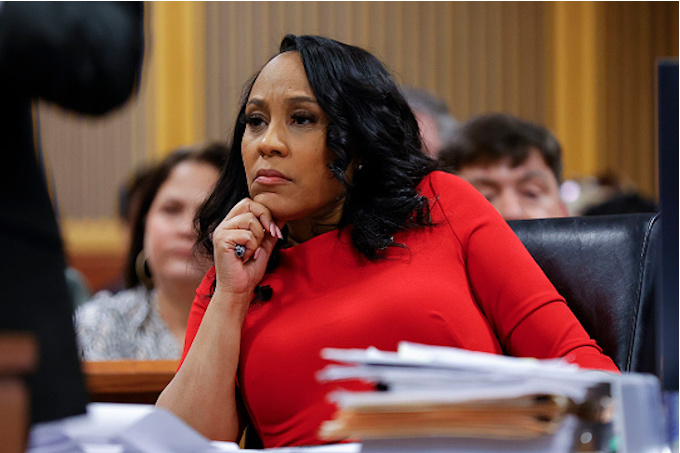
Getty Images
From the coverage of Anita Hill’s testimony, through the Clinton-Lewinski affair, and to Jim McGreevey’s coming out, there’s an underlying current of how these events are reported differently, down to the language that the press uses depending on what—or rather on whom—they are reporting. These narratives, when dissected, uncover a persistent pattern of how homosexual or ethnic minority acts and desires are often cast in a more pernicious light.
Now, the Aidan Maese-Czeropski scandal—let's call it a modern-day morality play, but with less moralizing and more plot twists: In mid-December 2023, an explicit video began circulating around social media channels, specifically a WhatsApp chat group of gay DC staffers. It showed two then unidentified men having intercourse on the floor of the Senate Judiciary Committee hearing room. The Daily Caller, a conservative site, was the first to report on the graphic video, and it was also the first to identify Maese-Czeropski as one of the men involved. Eventually, Maese-Czeropski resigned from his job and the Capitol Police did not bring any charges because, while there may have been congressional misconduct, no actual laws had been broken. Doubtlessly, there was some poor judgment here. Past the shock value, this whole thing was in poor taste. Also, having sex at your workplace is just frowned upon.
But the coverage of the scandal oscillated between solemn condemnations and barely-contained glee, a reflection of society's complex relationship with morality, sexuality, and the ever-entertaining fall from grace of those we villainize. Reports on gay sex scandals tend to employ more sensationalist language, focusing on the scandalous nature of the acts with a marked emphasis on the sexual orientation of the individuals involved. And when reporting on the Maese-Czeropski, pearls were clutched. Forbes called it a “porn’” scandal. Maese-Czeropski’s alma mater made the news. The tone of his “salacious” comments on his Venmo account were dissected. He appeared to be having unprotected sex. A U.S. congressman called the event a desecration.
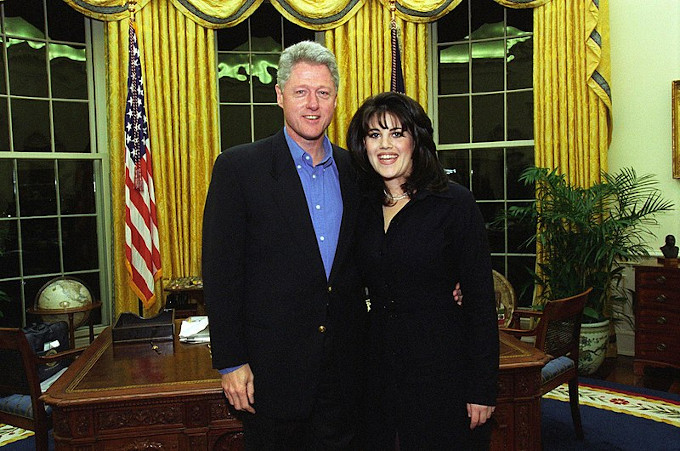
This contrasts sharply with the treatment of heterosexual scandals, where the focus may lean more towards the consequences of the actions, or the redemption arc of the individuals involved.
In late November of 2023, the press learned that Christian Ziegler, chair of the Republican Party of Florida, was involved in a sexual battery investigation. More facts would later surface, including details about Ziegler’s and his wife, Bridget’s, involvement in threesomes with another woman. The Zieglers, both staunch conservatives, were a Florida Republican power couple. Bridget Ziegler, a member of the Sarasota School Board, allegedly even had a hand in writing Florida’s controversial “Don’t Say Gay” bill, and is the founder of a group that has said that two girls kissing during homecoming was “lewd” and “traumatic.”
Some publications were quick to call on the moral hypocrisy of a couple embroiled in a sex scandal that involves threesomes and allegations of rape. But they also reported on how Ziegler feared the political fallout caused by the investigation. They wondered how the public would react to the accusations. They wrote on how Bridget Ziegler “broke the silence” and refused to resign from the board because kids must come first and politics don’t belong in the boardroom.

We know that the choice of language and framing in reporting on these scandals reveal underlying societal prejudices. And, importantly, the media's portrayal of sex scandals not only reflects societal attitudes but also actively shapes them. Public discourse around these incidents is heavily influenced by the media narrative, with significant implications for societal norms and prejudices. When media coverage emphasizes the sensationalist aspects of LGBTQ+ scandals, it reinforces the notion that non-heterosexual orientations are inherently scandalous or newsworthy for their deviation from the norm, echoing broader societal discomfort with non-heteronormative behaviors and identities. This mirroring effect serves to validate and perpetuate these attitudes, giving them a platform and legitimacy.
Dive into the media coverage of scandals starring individuals who tick the racial minority or the LGBTQ+ boxes, and we’ll find intricate layers of bias. The stories spun around these personalities tend to mix in a bit of every stereotype on the shelf, serving up a narrative that’s tart, spicy, and leaves a lingering aftertaste. This portrayal ensures they’re cast in a light that’s more blindingly scandalous and less forgiving than their heterosexual or white counterparts, as if their very identities were not just roles they played but unforgivable plot twists in the saga of societal norms.
For instance, when a scandal involves a person of color (straight or queer), the language used in such coverage can subtly—or sometimes overtly—invoke stereotypes associated with the person's racial background, suggesting an inherent predisposition to certain behaviors. This dual framing serves to otherize the individual, casting their actions in a light that is inherently more scandalous or reprehensible due to their race or identity.
In the early 1990s, Anita Hill became a household name almost overnight, not for the reasons one might aspire to, but as a central figure in a national drama that unfolded on the grand stage of U.S. politics. Hill, a law professor, came forward with allegations of sexual harassment against Clarence Thomas, who was then a nominee for the Supreme Court. The allegations were shocking not just for their content but for the context in which they emerged—a confirmation hearing for one of the highest judicial positions in the country.
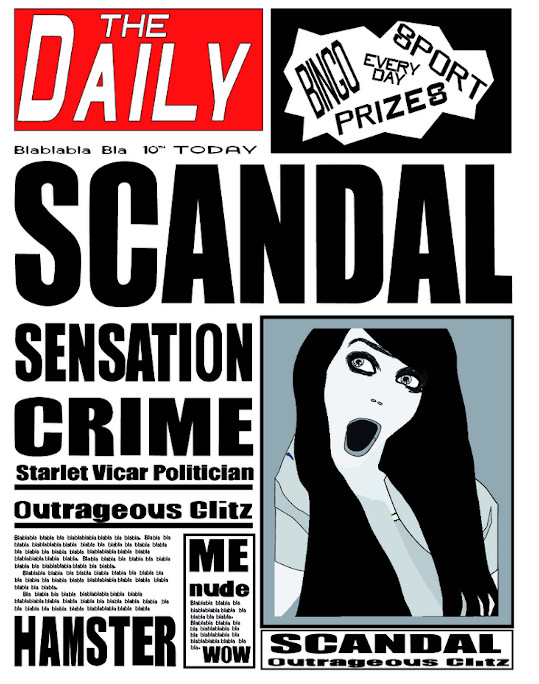
The media coverage of Anita Hill's allegations was intense and, at times, divisive. Television networks and newspapers across the country were fixated on the hearings, broadcasting Hill's testimony and the subsequent questioning she faced to millions of Americans. For many, the hearings were their first introduction to the concept of sexual harassment in the workplace, making the coverage both educational and sensational.
Similarly, and more recently, we have the Fani Willis scandal, which revolved around accusations of a romantic relationship between Fulton County District Attorney Fani Willis and special prosecutor Nathan Wade, who were involved in the investigation of former President Donald Trump and his allies in Georgia's election case. The scandal emerged when allegations surfaced that Willis hired Wade to work on the case and that they developed a personal relationship, leading to claims of a conflict of interest. Trump and his codefendants sought to disqualify Willis, Wade, and the entire district attorney's office over this alleged relationship, arguing that it could compromise the integrity of the case. Wade has since stepped down.
While the scandal created significant legal and ethical challenges—with debates over whether Willis should be disqualified from handling the prosecution and legal experts have been divided on this issue—it also drew attention to the personal lives of the prosecutors involved in this high-profile case, raising concerns not only on the impact on the credibility of the legal proceedings against Trump and his associates but also on privacy issues. The intrusion into the personal lives of Willis and Wade, including details about their relationship timeline, financial arrangements, and personal interactions, raises questions about the boundaries between public scrutiny and individual privacy rights. This level of exposure of personal details can have lasting consequences on persons’ professional careers and personal well-being.
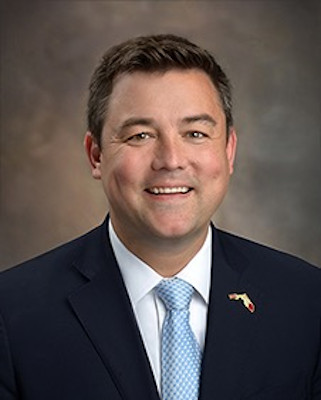
The media played a dual role in these sagas: On one hand, it was the conduit through which many Americans learned about the intricacies and personal devastations of sexual harassment in the case of Anita Hill, and about the implications of ethical and legal challenges in what could be one of the most impactful trials in American history; on the other, it was a lens that often magnified the spectacle over the substance. Hill's poised demeanor under intense scrutiny, mirrored by Willis’s dignified and “fiery” testimony, and the graphic nature of the questions posed to them created a media spectacle that was as uncomfortable as it was captivating.
For these individuals at the intersection of marginalized identities, all this means they must face a compounded form of scrutiny that is greater than the sum of its parts. The public, influenced by media narratives steeped in intersectional biases, may harbor and express more critical, dismissive, or punitive attitudes toward these individuals, compared with their attitudes toward those who occupy a more privileged or singularly marginalized position. This heightened scrutiny is not just a matter of public opinion but can translate into tangible consequences for the individuals involved. It can lead to a more severe backlash, including social ostracization, professional repercussions, and in some cases, ramifications that are harsher than those faced by individuals who do not share the same intersectional identities. This differential treatment underscores the power of intersectionality to shape not only narratives but also outcomes.
There’s no denying that narrative framing in media coverage is a potent tool for shaping societal attitudes. By choosing which aspects of a scandal to highlight and which to omit, media outlets can craft narratives that either challenge or reinforce existing biases. Framing a scandal involving, say, a gay politician around issues of hypocrisy and betrayal, without similar scrutiny for heterosexual counterparts, reinforces the idea that LGBTQ+ individuals are less trustworthy or morally upright. Conversely, media coverage that focuses on the systemic issues underlying a scandal, such as abuse of power or violation of consent, can shift the narrative away from individual moral failings and towards broader societal discussions.
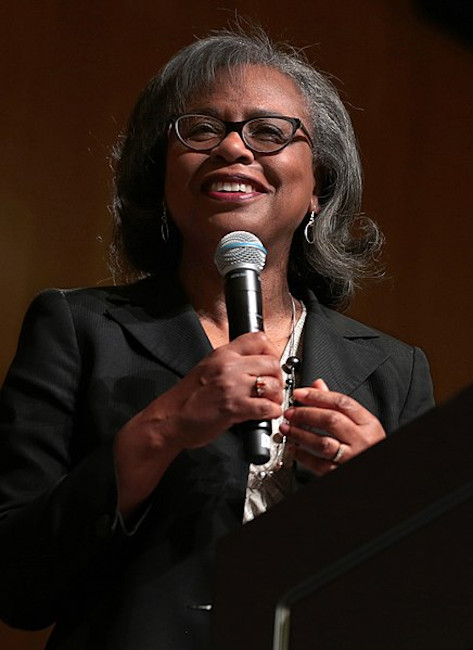
Moreover, the visual representation in media coverage can also play a significant role in compounding biases (there’s Maese-Czeropski in bondage costume in a public setting, and there’s Bridget Ziegler in business attire looking important behind a desk). These images selected for stories reinforce stereotypes, with individuals from minority groups depicted in ways that emphasize difference or deviance, further entrenching racial and sexual prejudices in the public's mind.
This all makes sense, though, to an extent. There's a nuanced mix of reactions when public figures are caught in the act, the most compelling of which is schadenfreude—the feeling of satisfaction gained from the troubles of others. Schadenfreude is a multifaceted emotion, rooted in the human tendency to compare oneself with others and find solace or superiority in their failures. This phenomenon becomes particularly pronounced in the realm of sex scandals, especially when the individuals involved have previously positioned themselves on high moral ground (like publicly espoused anti-LGBTQ+ sentiments), only to be later embroiled in a scandal that contradicts their public persona, like the Zieglers who advocated against any form of behavior that they perceived as sexually deviant. The revelation of a scandal involving such an individual not only exposes their hypocrisy but also serves as a form of social leveling, where the perceived moral high ground is eroded, bringing the individual back down to a more human, fallible level.
And the role of the media in amplifying schadenfreude cannot be understated. Through selective reporting, sensational headlines, and the framing of the narrative, the media can significantly influence the public's perception of the scandal and the individuals involved.
This media amplification not only serves to heighten the public's interest and engagement with the story but also reinforces the emotional payoff of seeing someone perceived as hypocritical being publicly exposed. It doesn't just spice up the morning news; it whips up a veritable feast of satisfaction from the audience as they watch the high and mighty tumble from their self-erected pedestals. The spectacle of a public figure caught with their moral compass spinning wildly is irresistible, creating a feedback loop that's part spectacle, part public service announcement on the perils of hypocrisy.
But while schadenfreude is a natural human emotion, its amplification by the media raises ethical considerations. The glee derived from someone else's downfall, especially when it pertains to personal and often sensitive matters like sexuality, can have damaging effects not only on the individual involved but also on broader societal attitudes toward sex and morality. It underscores the need for a more empathetic and nuanced approach to reporting on sex scandals—one that recognizes the complex human emotions at play but strives to maintain a focus on accountability, privacy, and the implications of the scandal beyond the immediate sensationalism.
Moreover, the media's dalliance with schadenfreude straddles a fine line between public interest journalism and the voyeuristic pleasures of reality TV. It prompts a moment of introspection for both the purveyors and consumers of news: What is the cost of this engagement with the narrative of downfall? In the quest for clicks and views, the media risks not just exploiting human emotion but also cementing a culture that revels more in the fall than in the potential for redemption or understanding.
That said, we live in a democracy with a free press. And the reporting of sex scandals—while fraught with challenges and responsibilities—carries potential benefits for society. It's important to recognize that the intrinsic value of a free press lies in its ability to inform the public, foster transparency, and hold power to account. When approached with integrity and sensitivity, the reporting on sex scandals can contribute to these democratic ideals in several ways.
Firstly, the coverage of sex scandals can play a crucial role in promoting transparency and accountability, especially when those involved hold positions of power. By bringing these incidents to light, the press ensures that public figures and institutions are held accountable for their actions, reinforcing the principle that no one is above scrutiny. This accountability is fundamental to the health of a democracy, as it encourages ethical behavior and deters misuse of power.
Moreover, delving into the torrid affairs of the powerful doesn’t have to be just tabloid fodder; it could be a public service, sparking spirited salon discussions amongst the masses on topics once reserved for whispered gossip. From the ashes of scandal, we could find the seeds of progress: conversations about sexual harassment policies, consent education, and a richer tapestry of diversity initiatives, all blooming like flowers in the manure-rich soil of public disgraces. So, let's not forget the potential for societal evolution. Through the lens of someone else's bad choices, we're invited to reflect on the labyrinthine nature of human relationships, challenging our own preconceptions and biases. It's as though the coverage of these scandals holds up a mirror to society, and society, in turn, vows to try to do better.

It's crucial, however, to navigate the challenges inherent in reporting on sex scandals with a focus on ethical journalism. This includes ensuring accuracy, respecting privacy where appropriate, avoiding sensationalism, and being mindful of the language and framing used to avoid perpetuating biases and stereotypes. The aim should be to inform and enlighten, rather than exploit or sensationalize. In a society with a free press, reporting on sex scandals can, therefore, serve as a catalyst for positive change, provided it is approached with a commitment to integrity, empathy, and social responsibility. It’s akin to turning the spotlight on cockroaches—not for the thrill of the hunt but to clean house. This nuanced approach can help balance the need for transparency and accountability with the imperative to foster a more understanding and equitable society.
The contrasting portrayal of scandals based on sexuality and race, where the spotlight swings wildly between morality tales and telenovelas, underscores the need for equitable representation in media narratives. By examining how heterosexual scandals are reported, it becomes evident that the media has the power to either reinforce societal biases or challenge them. Adopting a more balanced and empathetic approach to reporting on all scandals—regardless of the individuals' sexual orientation or racial identity—can contribute to dismantling the underlying prejudices that divide society.
Now, asking for equitable representation in the scandal-sphere isn't a call to arms for sharpening the pitchforks whenever a straitlaced scandal saunters down the pike. It's more about tuning the typewriters so every scandal—be it draped in rainbow flags or traditional garb—receives a score that resonates with humanity and fairness, not just the catchy hook of sensationalism. As amusing as that spectacle might be, the aim is not to crank up the drama dial on heterosexual misadventures. Rather, it’s advocating for a universal empathy upgrade in our scandal storytelling: recognizing and recalibrating the imbalances in media portrayal like adjusting the lens through which we view our world, striving for a picture that prizes fairness and understanding, ideally in HD clarity over the grainy, sensationalized reruns of stigma and stereotype. It should be a journey towards a society where the news cycle spins with integrity, and scandals—regardless of whom they involve—are treated with the dignity and respect they often strip away.
Author Bio:
Angelo Franco is Highbrow Magazine’s chief features writer.
For Highbrow Magazine
Photo Credits: Depositphotos.com; Getty Images; Clinton White House (Wikipedia Commons); Clinton Whitehouse (Wikipedia Commons); Sarasota County Commission (Wikipedia Commons); Gage Skidmore (Wikipedia Commons); SCOTUS (Wikipedia Commons).































































































































































































































































































































